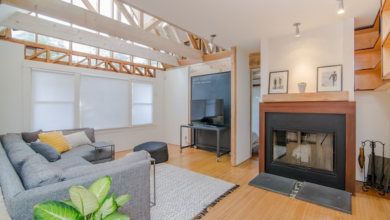Benefits of SAFeⓇ Agile Certification To Check Out For
During times when enterprises are looking forward to dive into the Agile technique for better efficiency, it’s imperative for you to be aware of the SAFeⓇ or Scaled Agile Framework as well. Essentially, Leading SAFeⓇ applies Agile and Lean practices on the entire enterprise starting from the Team to the most basic portfolio level. So, to acquire a far-reaching, in-depth understanding, one should go for a
SAFeⓇ Certification Advantages:
Whenever associations need to go for Agile technology and methods for a large-scale project, it’s pretty difficult to not be aware of the Scaled Agile Framework, or SAFeⓇ. Accordingly, it has turned into the main structure for most associations internationally. Likewise, the Leading SAFeⓇ certificate employs both Agile and Lean practices to whole associations from Team to Portfolio level. In this way, to acquire a thorough agreement, one should go for SAFeⓇ accreditation preparation.
Be it any case, getting SAFeⓇ confirmed offers plenty of benefits. Essentially, one method for acing your SAFeⓇ accreditation tests is to sign up for SAFeⓇ certification training. Let us now see in detail the advantages of being SAFeⓇ certified:
- All Around the World Recognized Certification
SAFeⓇ accreditation is perceived all around the world. Being a SAFeⓇ affirmed proficient method you will have abilities, information, and legitimate accreditations to seek after your fantasy vocation.
- Gain Knowledge About New Roles in Agile Environment
Carrying out SAFeⓇ would require you to make new jobs and responsibilities regarding the common ones at the venture level. Neglecting to comprehend the one-of-a-kind obligations would lead to serious difficulties. SAFeⓇ preparation keeps you familiar with a dexterous outlook and standards to help existing and new individuals.
- Fewer Obstacles and Failures
Each association has different groups and offices previously utilising Agile. Disappointment and obstructions could emerge when you consolidate the group, which should resolve early. SAFeⓇ assists you with carrying out a uniform nimble methodology all through the association. Carrying out SAFeⓇ practices at this point, would not be an issue for your groups.
- Admittance to Scaled Agile Content Kit
After finishing preparing, the participants will therefore be given a productive content kit. It is an information foundation box of Agile abilities. You will have each one of the fundamental subtleties and updates on the business patterns. You can henceforth be also a member of the agile Scaled community area and get recorded in the SA catalogue to get effectively available by bosses.
- Increased Salary
One of the most encouraging motivations to seek after SAFeⓇ accreditation preparation is the compensation. Being a guaranteed SAFeⓇ expert, you can acquire 25% more than the experts who don’t hold SAFeⓇ capabilities.
- Exercise Lean-Agile Methodology
SAFeⓇ fills in as a base for the Lean-Agile methodology. The Lean-Agile methodology puts the Agile principles, methods, and convictions into training. The significant pattern for SAFeⓇ is using Lean for item improvement, Agile turn of events, and executions in a proper framework. In this way, with SAFeⓇ certificate preparation, you will figure out how to carry out the Lean-Agile methodology.



